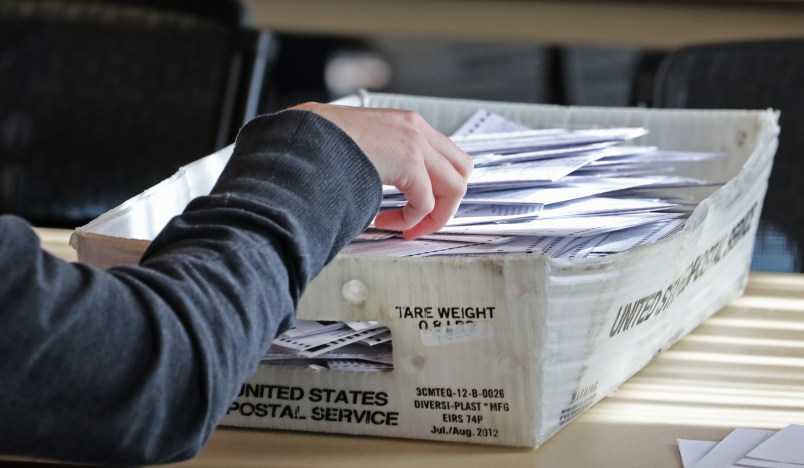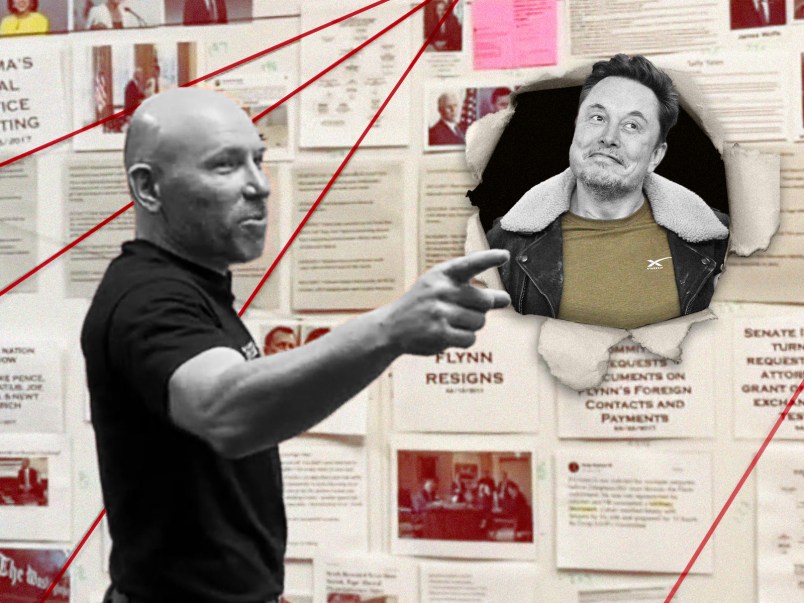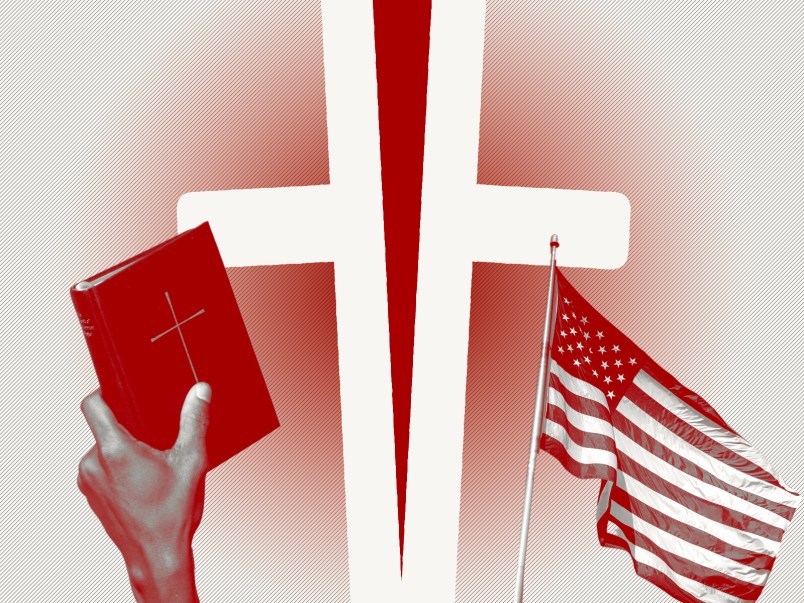As elected officials across the country scramble to figure out how to conduct elections without worsening the coronavirus outbreak, many are emphasizing the importance of absentee voting and even considering expanding mail-in ballot options. Voter fraud alarmist groups are taking note.
The interest by states to push people towards mail-in voting comes as part of the broader COVID-19-prompted effort to cut down on human contact. Under guidance from the Centers for Disease Control, Americans are encouraged to avoid gathering in large groups and to stay six feet away from one another — a nearly impossible feat while waiting in line to vote in, say, a school cafeteria.
Voting fraud alarmist groups claim that an increase in mail-in voting will lead to rampant, election-swinging criminality. While vote-by-mail fraud is more real than virtually nonexistent in-person voting fraud, it is still rare. That has not stopped these groups from grasping at straws to argue that it will create a cataclysmic problem, like they’ve done time and time again.
One group, the Election Integrity Project in California, sent around an email blast urging Los Angeles County residents to “beware the significant risks” to the legitimacy of the election now that Secretary of State Alex Padilla has advised that mail-in ballots be sent to every registered voter in the county for the November 2020 elections.
The group’s leader, Linda Paine, confirmed to TPM that the missive was timed to address any possible shifts to a more mail-based system statewide amid the coronavirus outbreak, though the group has been raising similar issues for years.
California municipalities are looking into how to follow Padilla’s advisory, and a spokesperson for the Los Angeles County Registrar’s office told TPM that, while no decision has been made, the office is “checking the feasibility of producing an additional 2.5 million vote-by-mail ballots.”
The precautions election officials are taking to respond to coronavirus have provided “fertile ground” for voter fraud alarmists to operate, Wendy Weiser, Director of the Democracy Program at the Brennan Center for Justice at the NYU School of Law, told TPM.
She added that individual voter fraud is “extremely rare,” but admitted that fraud is more likely to happen through mail-in ballots than in-person voting, though it’s still not “widespread.”
“There is no basis for a spike in actual concern about voter fraud, assuming states get the resources they need and start planning now to make sure the elections are able to run safely and securely,” she added.
States that already switched to an all vote-by-mail system years ago, like Oregon, have fairly intense security measures in place.
Election officials diligently track death notices, change of address forms and social security records to keep the voter rolls up to date. The absentee ballots and envelopes have barcodes unique to each voter, and larger counties are equipped with machines to ensure that there are no discrepancies between the two, or duplicate barcodes. Then a team trained in forensic handwriting analyzes the signature for authenticity against voter registration cards. A contested voter has two weeks to prove his or her identity, should it be challenged.
After all that, could a ballot for a dead person or someone who moved and slipped through the cracks still be stolen out of a mailbox? Yes. But as former Oregon Secretary of State Phil Keisling told NBC News, it’d be “one of the stupidest ways to try to steal an election. They’d be committing a felony, vote by vote.”
Other states could borrow parts of the security systems used in Oregon, or other mail-in states, to prepare for an increase in mailed ballots in the general election. “It’s a tight timeframe,” said Weiser, who recommends a hybrid system of increased mail-in options plus plenty of in-person polls. “But there’s enough time.”
Still, the Election Integrity Project is not alone in using this moment to re-up its election warnings.
Another group, the Minnesota Voters Alliance, lodged a suspiciously timed lawsuit against Minnesota Secretary of State Steve Simon pertaining to absentee ballot qualifications. The group did not respond to questions about whether the legal action was taken with the coronavirus outbreak in mind.
The complaint, filed on March 13, centers on who qualifies for absentee ballots in Minnesota, a state that has “no-excuse” absentee voting for registered voters. The policy allows any registered voter to request a ballot without providing a reason for being away from the polls on Election Day.
The rule the group is objecting to has been on the books since 1998 and was most recently amended in 2004.
The MVA has sued Simon multiple times, recently in an attempt to get voter roll data to prove their dubious claims of widespread voter fraud.
Weiser said she was concerned about this election even before the disease broke out, since “voter fraud alarmism always increases during presidential election years.” This general election was likely to see even more disinformation attacks, she added, after President Donald Trump questioned the legitimacy of the 2016 election — “which he won!” she exclaimed — and brought voter fraud misinformation into the mainstream.
“We were bracing for the increased use of these tactics to try to undermine elections, and at this time of mistrust and disinformation we thought it was a significant risk,” she said, referring to homegrown misinformation from Trump and other voter fraud alarmists, as well as meddling from foreign governments.
“Now, those concerns are even magnified because there will be a lot of changes in how people are running elections: a lot of disorganization and scrambling and a significant increase in mail balloting,” she added. “All of this is fodder for voter fraud alarmists.”










